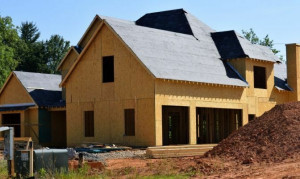In particular, the Act will include the “prompt-payment regime.” This new payment system is designed to ensure that all contractors are paid on time and that contract deadlines are met. It also provides owners and contractors with a structured method for contesting invoices.
The Prompt Payment System: Timelines and Interest Payable
The Act forces the owner and general contractor to contemplate a payment schedule at the outset of the contract. If the parties fail to agree on invoicing dates, the Act requires contractors to submit invoices on a monthly basis. In other words, the contracting parties must choose invoicing dates or the Act provides for monthly invoicing. Once an invoice is issued, the payment system is set in motion. It can be summarized as follows:
owners must pay general contractors within 28 days after receiving an invoice;
general contractors must pay their subcontractors within seven (7) days of receiving payment from the owner; and
subcontractors have to pay their respective subcontractors within seven (7) days of receiving payment from the general contractor.
To put the payment system in context: under a contract with a property owner, one general contractor, and a single tier of sub-contractors (i.e. no sub-subcontractors), all contractors should be paid within 42 days of the initial invoice date. This is an incredibly short top-to-bottom payment timeline. To encourage compliance with the payment system, contractors have a statutory right to charge interest on late payments.
Absent an interest rate being provided for in the contract, the Act stipulates that interest will be set at the prejudgment rate that is set by the Court. Since 2010, prejudgment interest set by the Court is approximately 2-3%. Between the contract and the interest rate selected by the Court, the Act states that the higher of the two interest rates will be selected. For that reason, owners should take a moment to understand what rate applies. Whenever possible, the interest rate should be provided in the contract.
With that being said, any party in receipt of an invoice may halt their payment obligations for reasons provided under the Act.
Payment Disputes: Workmanship and Invoiced Amounts
Unfortunately, construction contracts get derailed, often by circumstances outside of the general contractors’ or subcontractors’ control. The owner or contractor with higher priority may end up disputing the invoiced amount or the quality of work of the contractors below them. Where a contractor or owner disputes an invoice, the following applies:
owners may provide a notice of non-payment to the contractor within 14 days of receiving the invoice from the general contractor or “project owner”;
contractors may deliver a notice of non-payment within seven days (7) to the subcontractor; and
subcontractors may deliver a notice of non-payment within seven days (7) to other subcontractors they employ (i.e. sub-subcontractors).
Depending on who issued the notice of non-payment and what amounts are paid, the distribution of funds will vary. When the owner disputes some but not all of an invoice and provides partial payment, the specifics of the disputed items govern the distribution of funds.
Where the notice does not identify a specific subcontractor, all subcontractors are paid on a pro-rated basis. However, if the owner takes issue with work that can be attributed to a specific subcontractor or subcontractors (e.g. plumbing that failed inspection), all other subcontractors are paid. Once the “innocent” subcontractors are paid, the “guilty” subcontractors are paid on a pro-rated basis.
With that being said, a notice of non-payment provided by a contractor only defers payment obligations and does not permanently freeze them.
Contractors Beware: Notice Does Not Mean Non-Payment
Despite having provided a notice of non-payment, the contractor must pay its subcontractors whose work was itemized in the contested invoice. The Act requires the contractor to pay its subcontractors within 35 days of the invoice date. For that reason, contractors must be vigilant and understand how to halt their payment obligations when appropriate. To do so, contractors must provide the relevant subcontractors with one of two available notices:
Notice of Non-Payment by Owner: This form of notice indicates that the subcontractor is not being paid as a result of the owner’s non-payment. It contains a promise to start court proceedings against the owner within 14 days.
Notice of Dispute of Subcontractor’s Work: This notice sets out the amount being withheld from the specified subcontractor and the reasons for doing so.
Conclusion
Given the tight timelines provided under the payment system, all parties involved in a construction contract must be diligent in managing their financial affairs. Failure to dispute an invoice in the allotted times could leave the owner stuck with a bill for shoddy work. On the other hand, where unpaid contractors fail to provide notice, they will be on the hook for the owner’s non-payment.







